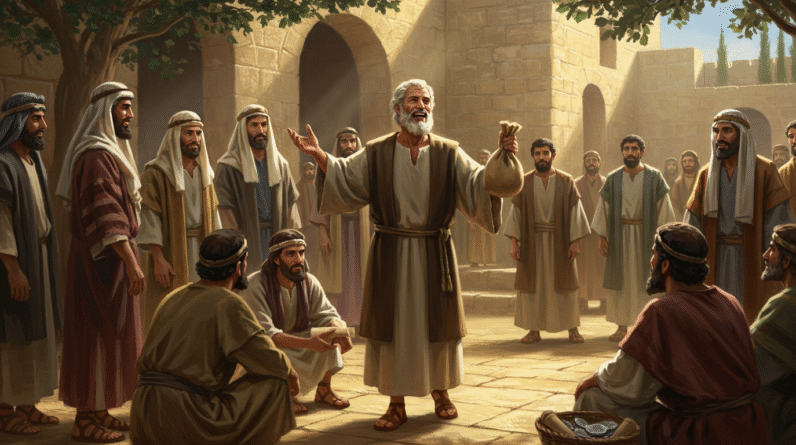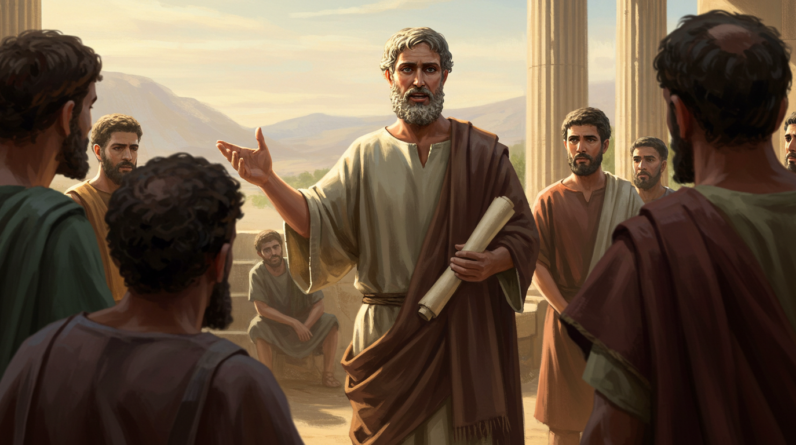Explore Timothy’s pivotal role in early Christianity through Acts 16:1-3 and 1 Timothy 1:2. Discover how this key leader shaped and spread the faith.
Timothy: A Key Early Church Leader and Evangelist
In the early days of the Christian church, numerous figures played crucial roles in the establishment and spread of gospel teachings. Among these, Timothy stands out as one of the key early church leaders. His contributions are illuminated in specific New Testament passages, notably Acts 16:1-3 and 1 Timothy 1:2. As you delve into Timothy’s life and work, you’ll see how this remarkable figure helped shape Christianity from a nascent sect into a growing global faith.
Background and Calling
Timothy’s story begins in the ancient region of Lystra, located in what is modern-day Turkey. His heritage was a blend of Greek and Jewish traditions—his father was Greek, and his mother, Eunice, was a Jewish Christian. This mixed background positioned Timothy uniquely as a bridge between different cultural and religious groups, potentially contributing to his later effectiveness as a leader.
Since his early years, Timothy was steeped in the Jewish scriptures, thanks to the teachings of his mother and grandmother, Lois. He was likely exposed to Christian teachings when Paul first visited Lystra during his missionary journeys. It’s believed that during this visit, Timothy embraced the gospel message.
Timothy’s calling to leadership became apparent as the apostle Paul recognized his potential. In Acts 16:1-3, Paul returns to Lystra and chooses Timothy as a travel companion, instructing him in the ways of ministry and evangelism. Here began Timothy’s journey as a prominent figure in the early church, as he took on responsibilities that pushed him into positions of influence and leadership.
Leadership in the Early Church
Timothy’s leadership qualities shone brightly as he became involved in the foundational work of church planting and teaching. Alongside Paul, he traversed various regions, helping to establish new congregations and strengthen existing ones. His work in the cities of Ephesus, Corinth, and Thessalonica played a significant role in solidifying the Christian community in these bustling urban centers.
As a pastor, Timothy demonstrated an unwavering commitment to nurturing the spiritual growth of the believers under his care. His influence helped shape early Christian doctrine and practice, assisting in clarifying theological disputes and encouraging a cohesive community spirit among the churches. Paul’s letters to Timothy offer insight into the responsibilities he bore and the trust placed in him by prominent leaders.
Through his pastoral letters to Timothy, Paul often guided managing church affairs, which Timothy implemented with steadfast resolve. In 1 Timothy 1:2, Paul affectionately refers to Timothy as his “true son in the faith,” underscoring the deep bond they shared in their shared mission of spreading the gospel.
Evangelism and Missionary Work
Timothy’s zeal for evangelism constantly drove him to expand the reach of the gospel. Under Paul’s mentorship, he embarked on missionary journeys that took him far and wide. These travels were pivotal in planting seeds of faith in various communities, where he adeptly preached, taught, and mentored new converts.
Though Timothy’s writings have not survived, his impact is evidenced by the churches that flourished in the wake of his ministry. He showed a profound commitment to the spread of the gospel, exerting his efforts both publicly and within the intimate circles of new believers. His presence in critical locations provided the necessary support for Paul as they labored in tandem to ensure the growth and sustainability of the early Christian community.
With an ability to connect with diverse peoples, Timothy helped to break cultural barriers that often hindered the acceptance of Christian teachings in gentile communities. His diligence and patience cultivated atmospheres ripe for transformation, leading to numerous conversions and the establishment of churches that would endure beyond his time.
Challenges and Perseverance
No account of Timothy’s life would be complete without acknowledging the challenges he faced—and overcame—with remarkable perseverance. Serving during a time of significant persecution for Christians, Timothy met resistance from both religious leaders and political authorities. Encountering hostility was an inevitable part of his mission, and yet he remained steadfast in his faith.
Even amid adversity, including potential imprisonment and outright threats to his safety, Timothy’s commitment did not waver. His efforts in educating and empowering early Christians emboldened them to stand firm during tumultuous times. As persecution mounted, Timothy maintained his pastoral duties, providing solace and guidance to those under siege.
His approach demonstrated an unyielding belief in the mission of the church and the power of its message to transform lives. By navigating these trials with patience and faith, Timothy set a compelling example for other believers, urging them to hold fast to their convictions despite the hardships they might encounter.
Key Bible Passages About Timothy
The New Testament offers key glimpses into Timothy’s role in the early church. Notable verses that mention Timothy’s work include:
- Acts 16:1-3 documents Timothy’s introduction into Paul’s ministry, marking the start of his significant contributions to spreading Christianity.
- 1 Timothy 1:2: Paul expresses a personal connection, addressing Timothy with warmth and personal esteem, reflective of their shared mission.
- Philippians 2:19-23: Paul plans to send Timothy to Philippi, highlighting his trustworthiness and genuine concern for the welfare of others.
- 2 Timothy 1:5: Paul recalls Timothy’s sincere faith, passed down from his grandmother Lois and his mother Eunice, showcasing the deep roots of his spiritual journey.

Lessons from the Life of Timothy
Timothy’s life teaches modern Christians several invaluable lessons about leadership and evangelism. His compassion, unwavering dedication, and service model inspire believers who aspire to serve effectively in today’s world. Timothy exemplified the importance of mentorship and was himself a testament to the power of nurturing relationships within the church community.
His story is a reminder to remain faithful in ministry, regardless of the challenges faced. Timothy’s life encourages believers to be persistent, finding strength and meaning through faith while fostering strong church communities. His humility, combined with his openness to learning and teaching others, remains crucial for growing spiritually and encouraging others.
Practically applying Timothy’s example means maintaining a servant’s heart, prioritizing faith in all aspects of life, and being courageous in the face of opposition. Emulating his patience and perseverance creates an opportunity for living one’s faith authentically and impacting others positively.
Conclusion
Timothy’s lasting impact on Christianity is tangible and profound. He played a pivotal role in establishing and strengthening the early church, laying a foundation that has endured through centuries. As you study his life, he stands as a beacon, inviting you to follow his example in spreading the gospel.
Reflecting on Timothy’s story is not just a historical or academic exercise, but an inspirational journey that bridges the early days of Christianity with modern expressions of faith. As you learn from his unwavering commitment and strategic leadership, you’re encouraged to embrace these principles to live out your faith boldly and effectively.
Acknowledgment: All Bible verses referenced in this article were accessed via Bible Gateway (or Bible Hub).







